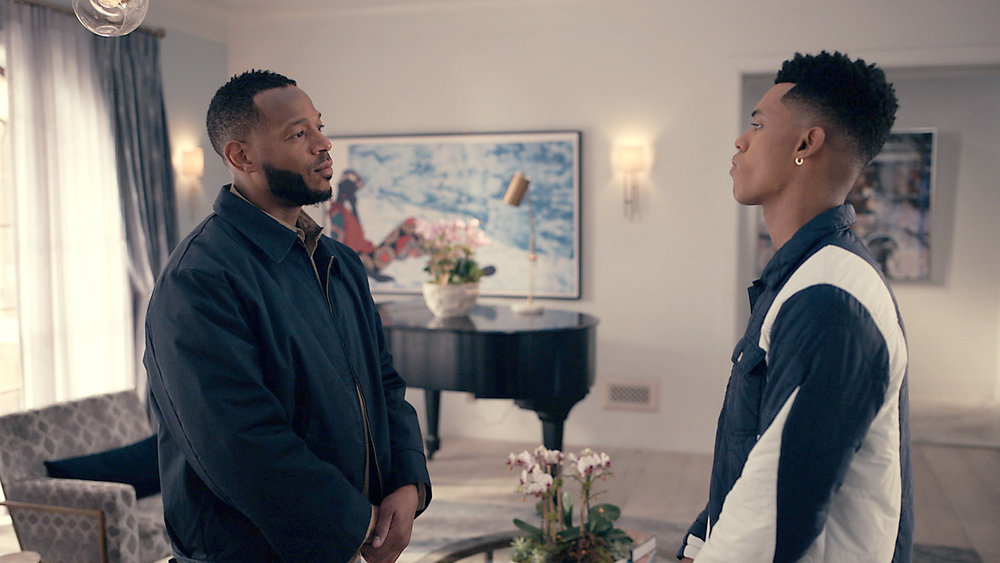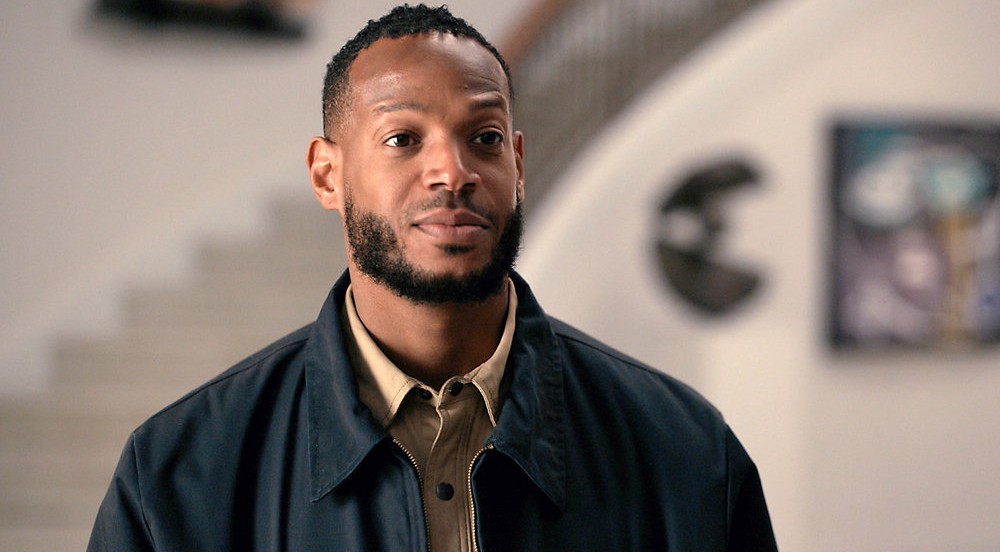Peacock’s The Fresh Prince reboot Bel-Air has been full of surprises, and Marlon Wayans playing Will’s complicated father Lou is one of the biggest. With three decades in the business and counting, Marlon has more than proven that he can bear the weight of his last name. Just last year, he got raves for playing Aretha Franklin’s one-time husband Ted White opposite Jennifer Hudson in Respect, where he even held his own with the great Forest Whitaker. Nonetheless, he also keeps the jokes flowing.
EBONY caught up with the versatile multihyphenate to chat about how he ended up in Bel-Air, why the role is significant to him and what he cherishes most about his work and his legacy as a Wayans.

EBONY: How were you approached to play Lou, Will's dad on the show, and what were your thoughts about it?
Marlon Wayans: Initially I got a call from a strange number—and, if I don’t know a number, I don’t answer my phone. Then I got a text from Will [Smith] and he was like "I got this really cool thing I want you to do. Check it out." He was going to do the role, but his schedule couldn’t permit it. So I checked it out and I read it. And I thought it was very well-written; I loved the character. I think the show is a very dope flip, so I was like 'I want to come to the party.' I really liked the fact that the character was nothing like me, especially in terms of being a dad. I've been a very hands-on father. I’ve always been in my kids’ lives. I have a great relationship with their mama. I couldn't imagine not being in my son's life. And just the thought of not being present allowed me to embrace such a broken person. It felt that it was just different and new and there was so much pain and guilt. I just wanted to go flex my dramatic chops.
How was it working with Jabari Banks, who plays Will on the show. He tweeted that 60% of this was improvised?
It was a great experience. It was already a well-written theme. We explored the truth. We started chewing on the subtext and getting really raw—to the point that I put my hands on him. It got disturbing, but it was just so true for [Lou]. Him and I were battling hurt little boy versus hurt little man. I loved the hurt that was in it because I just feel there's so many young brothers out there and so many young fathers that need to see that. And it's so distant from what I am as a dad. It's about forgiving and it’s about responsibility. It’s about forgiving yourself. It’s just so textured and so layered, especially for our community. I felt it was necessary and I'm glad we did it. Jabari is such a great young actor to work with and a great talent. We just trusted each other.
Were you surprised by the huge social media response to you doing this dramatic role?
I know it's crazy. I only had two scenes. That’s the crazy part. I'm glad people are seeing it, but I've been doing dramatic work since Requiem for a Dream (2000). I'm a classically trained dramatic actor. I think it's surprising [to a lot of people] because I don't do a lot of drama. And to show up like this and play this role that you would never expect me to play, I just think that people are excited to see it. I'm surprised by the reaction because I’m like I played a white woman; I've played seven people in one movie talking to myself; I played a little person; I’ve played a junkie. I've played so many different things and at that point, you just want Hollywood to believe that you can do it all. I want to play a leading man. That's what I'm working toward, and these are my years.
You have your HBO Max standup comedy special Marlon Wayans: You Know What It Is. Plus you have Marlon Wayans Presents: The Headliners coming. What keeps you in comedy?
I love it. I love it all. I love writing, producing, starring—TV, movies, stand-up, hosting. I love entertainment. And I'm so blessed that God put me on this journey. I want to do it all. That's why I practice every day, diligently. Every weekend, I'm on the road somewhere. I have a tour called Microphone Fiend. I'll be in a city near you. In terms of comedy, the more you do it, the better you get. I've been doing it 30 years and I've been doing stand-up the last 10. So, I'm getting better at the art of stand-up comedy because stand-up funny is different than movie funny and it’s different than TV funny.
Some people would see being a Wayans as a burden, but you have embraced it and thrived.
It’s always a gift in my eyes. I've been so blessed to be a young prince among kings. To learn the way I have learned. For those brothers to put it down the way they put it down. I grew up with my legends in my house. I had my heroes in my household. You know how lucky I am to learn the business, to learn the art of comedy, to read I’m Gonna Git You Sucka at ten years old and go "I want to be a writer." I had access to these legends. I am lucky. And the only curse is Hollywood thinks that, once you've seen one Wayans, you’ve seen them all. What they don't understand about Wayans is that we’re all so different and we’re all students of the game. They haven’t even seen our best yet. For me to grow up in a house of greats and then to find [my] own greatness, that's hard. I've been a part of the legacy of Wayans and have contributed greatly to that legacy. That's my tribe. That’s my badge of honor.
Ronda Racha Penrice is the author of Black American History For Dummies and editor of Cracking The Wire During Black Lives Matter.













